External Funding Projects
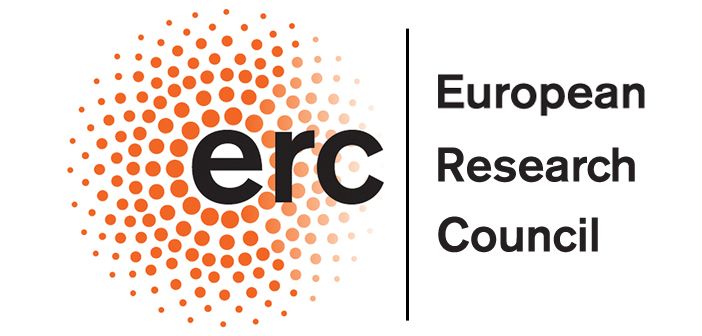
BATPROTECT: Learning from Bats: New strategies to extend healthspan and improve disease resistance
The main objective of BATPROTECT is to make significant advancements in our understanding of the specific genetic and biochemical factors within bats that are responsible for their ability to live longer, healthier lives and resist diseases. Uncovering these molecular mechanisms could open up new possibilities for improving human health and disease outcomes.
The project brings together a team of world-leading experts in bat biology, genomics, immunology, and gerontology. Together, they will delve into the molecular mechanisms behind bats’ abilities to slow down ageing processes and their remarkable resistance to viruses and age-related inflammation. Furthermore, the team will explore the genetic basis and evolutionary history behind bats’ extended health span and disease resistance and create genetically modified animal models to experimentally confirm the unique adaptations found in bats. Ultimately, this research will deepen our knowledge of how bats manage to stay healthy and resist diseases, potentially paving the way for future therapeutics.
Researchers:
Emma Teeling, University College Dublin, Ireland
Linfa Wang, National University of Singapore, Singapore
Michael Hiller, Senckenberg Research Institute, Germany / LOEWE-TBG
Björn Schumacher, Institute for Genome Stability in Ageing and Disease, Germany
Funding: ERC European Research Council – Synergy Grant
Period of funding: 2023 – 2029
Participant from LOEWE-TBG: Prof. Dr. Michael Hiller
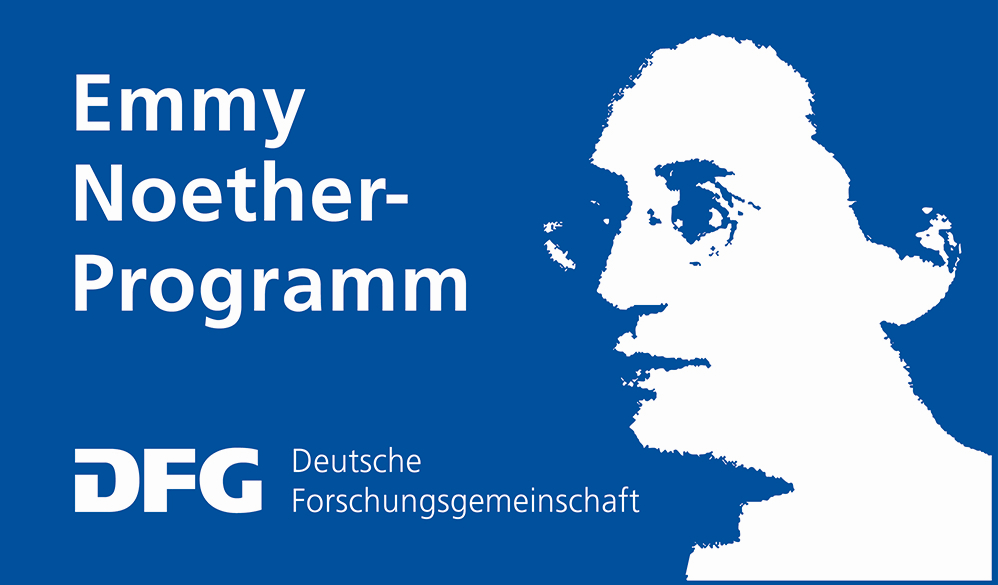
Peptide biosynthesis off the beaten path: Machine learning-guided discovery of non-canonical peptide natural products
More than 50% of all drugs are natural products or have at least been inspired by natural products. Insights into the biosynthesis of natural products and the ever-increasing number of available genome sequence information in the post genomics era have resulted in the introduction of genome mining as a new discipline for the targeted identification of natural products. Genome Mining is an in-silico natural product discovery strategy that uses genome sequence information to assess the natural product biosynthetic potential of an organism.
The group will develop machine learning-based genome mining algorithms for the targeted identification of the non-canonical biosynthetic gene clusters (BGCs). It aims to screen all publicly available genome sequences for the presence of (1) so far overlooked families of ribosomally synthesized and posttranslationally modified peptide (RiPP) BGCs, (2) unprecedented non-ribosomal peptide synthetase (NRPS) and polyketide synthase BGCs that harbor cryptic enzymatic domains or unprecedented module architectures and (3) BGCs which encode enzymes that biosynthesize peptides in a RiPP and NRPS-independent manner.
Funding: German Federal Agency (DFG) – Emmy Noether Programm
Period of funding: 2023 – 2027
Participant from LOEWE-TBG: Prof. Dr. Eric Jan Nikolaus Helfrich

Molecules, species and environment: key factors shaping interactions of freshwater crayfish and their invasive disease crayfish plague
Funding: German Federal Agency (DFG) – Heisenberg-Programm
Period of funding: 2023 – 2028
Participant from LOEWE-TBG: Dr. Kathrin Theissinger

Unlocking Collection Treasures: Accessing Museum Samples for Long Read Sequencing and Genomic Analyses
Funding: Leibniz SAW
Period of funding: 2023 – 2027
Kooperationspartner: Leibniz-Institut für Zoo- und Wildtierforschung (IZW) im Forschungs-verbund Berlin e.V.; Museum für Naturkunde – Leibniz-Institut für Evolutions- und Biodiversitätsforschung (MfN); Zoologisches Forschungsmuseum Alexander Koenig – Leibniz-Institut für Biodiversität der Tiere (ZFMK); Max-Planck-Institut für molekulare Zellbiologie und Genetik, Dresden
Participant from LOEWE-TBG: Prof. Dr. Michael Hiller
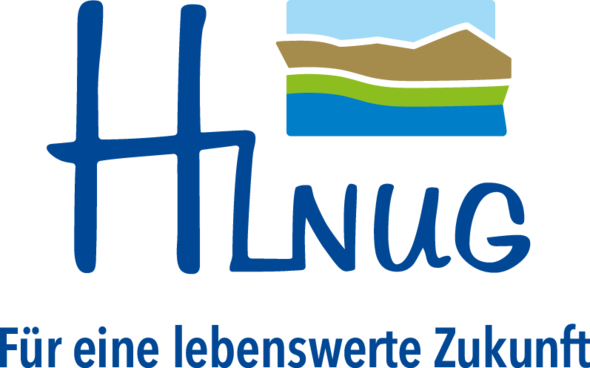
Genetic monitoring and management for a sustainable metapopulation of the European hamster in Hesse (MetaHamster)
The European hamster (Cricetus cricetus) is threatened with extinction worldwide. Since 1995, one population has been lost every year in Hesse.
In this project, it is therefore planned to carry out a comprehensive non-invasive genetic sampling of all remaining populations in a first step and to establish a genetic database for the field hamsters in Hesse.
A detailed determination of the extent of genetic diversity loss and inbreeding is essential for sustainable genetic management. For this reason, important parameters, such as genetic diversity and inbreeding, are to be examined in detail on the basis of the gene databases created with the help of classic population genetic analyses (=microsatellite analysis) as well as in-depth genomic analysis. The world’s first sequencing of several field hamster genomes by the LOEWE Centre for Translational Biodiversity Genomics (TBG) will provide important impetus for species conservation research in general and specifically for understanding the role of genetic diversity in the conservation of the field hamster.
Funding: Hessian Agency for Nature Conservation, Environment and Geology (HLNUG)
Period of funding: 2023 – 2027
Participant from LOEWE-TBG: Dr. Tobias Eric Reiners
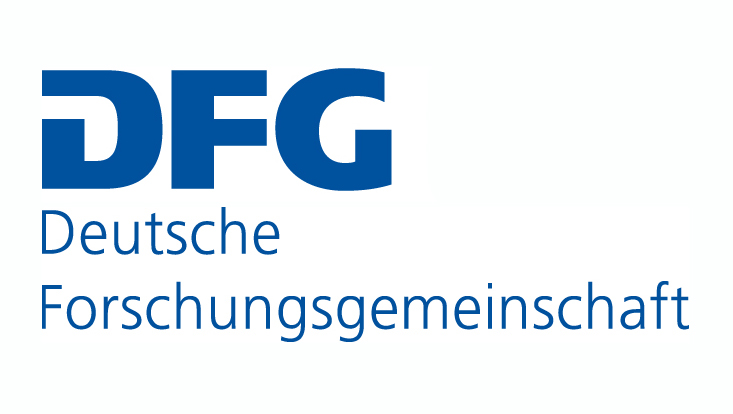
Exploring the functions of coral-associated bacteria in the holobiont stress response with natural probiotics (MicroFun)
Coral reefs are complex and biodiverse, and they are among the most vulnerable ecosystems to climate change. As global warming continues, it is of utmost urgency to understand the mechanisms that influence the thermal tolerance of corals, the keystone species of the coral reef. Previous work implicates the microbiome as key player in coral environmental tolerance. The realization, that functions provided by microbiota may enhance coral holobiont performance, has shaped the emerging concept of “Beneficial Microorganisms for Corals” (BMC). BMC, delivered as probiotic cocktail, can improve the health outcome under heat stress.
This project will close knowledge gaps by combining analyses of microbial functions in corals of different health states, bacterial culturing, and an experiment on climate change and BMC application with three coral species. Its major goal is to unravel the complex roles of microbial functions in determining the stress tolerance of corals (MicroFun).
Funding: German Federal Agency (DFG)
Period of funding: 2024 – 2026
Participant from LOEWE-TBG: Prof. Dr. Maren Ziegler

Survival of the flexibEEL: Genomic evolution of climatic flexibility and population collapse of critically endangered freshwater eels
This project: flexibEEL, will investigate the evolutionary history and genomic evolution of climatic and ecological flexibility in freshwater eels. It will generate reference genomes for tropical eels, which are currently lacking, comprehensively analyse selection, gene loss and gene family evolution in freshwater eels, and integrate these results with experimental gene expression data at different temperatures and salinities.
Funding: German Federal Agency (DFG)
Period of funding: 2024 – 2027
Participant from LOEWE-TBG: Dr. Leon Hilgers

Disentangling species-, colony-, and symbiont-specific effects on coral skeletal characteristics under future environmental variability scenarios (DiSCoSym)
Climate change affects skeletal formation processes of corals, which manifests in reduced growth rates and biogeochemical changes during calcification, with unknown effects on the three-dimensional colony form. Thus, changes in skeletal characteristics mirror the corals’ ability to cope with environmental stress and are important study subjects.
This project will close knowledge gaps with an experiment on climate change and environmental variability, on colony-replicated coral species harboring controlled and engineered symbiont communities, while integrating multiple levels of skeletal characteristics. Its major goal is to Disentangle Species-, Colony-, and Symbiont-specific effects on coral skeletal characteristics under future environmental variability scenarios (DiSCoSym).
Funding: German Federal Agency (DFG)
Period of funding: 2023 – 2025
Participant from LOEWE-TBG: Prof. Dr. Maren Ziegler
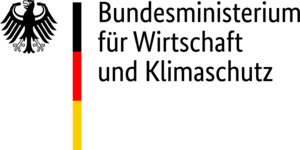
MetaInvert-ISO
The final goal of the project “MetaInvert-ISO” is the creation of a catalogue of standard procedures, by means of which the collection, determination and use of reliable taxonomic data for the protection of soil biodiversity can be carried out in a transparent and at the same time practicable way (independent of the respective legal requirement).
New, standardised procedures in the assessment of soil biodiversity offer lower costs for the demand side (e.g. agricultural industry, manufacturers of veterinary medicines) in the approval procedures, in particular for the tests for environmental compatibility, which can be provided by the commercially oriented project partners as a new business field and/or by Senckenberg in a commercially operated spin-off.
Funding: BMWK – Bundesministerium für Wirtschaft und Klimaschutz
Period of funding: 2023 – 2025
Participants from LOEWE-TBG: Prof. Dr. Miklos Balint, Dr. Luigi de Gaudenzi, Dr. Valentyna Krashevska
Project partners: Senckenberg Society for Nature Research, Fraunhofer IME, Quota GmbH, Limnowak GmbH
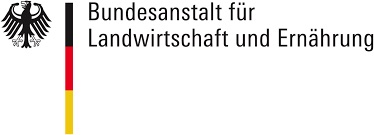
"AGRIFUTURE - Securing the future of agriculture through mobile, biopore-based, universal high-throughput sequencing for the detection of plant pathogens and parasites"
The aim of the project is the further development of a method based on biopore-supported high-throughput sequencing combined with database analyses for the detection of regulated and new pathogens on crops. The results of this project target the detection of pathogens from any group and any sample (for example plant samples, leaf samples, samples from spore or insect traps) within a few hours.
Funding: German Federal Agency for Agriculture and Food (BLE)
Period of funding: 2021 – 2024
Applicant: Prof. Dr. Marco Thines
Participant from LOEWE-TBG: Prof. Dr. Marco Thines

Genomic evolution of underwater silk in caddisflies (Insecta: Trichoptera) and other freshwater arthropods
Aquatic insects have been neglected in genomic studies. However, they exhibit a suite of ecologically relevant key innovations and adaptive traits, the evolution and genetic background of which remain poorly understood. This project is designed to fill this gap by generating and analyzing genomic data to study the evolution of adhesive underwater silk in Trichoptera (caddisflies) and other (semi-) aquatic arthropods
Funding: German Federal Agency (DFG)
Period of funding: 2023 – 2025
Participant from LOEWE-TBG: Dr. Jacqueline Heckenhauer

To provide novel insights into the genes that are involved in exceptional longevity and immunity of bats, we will conduct a comprehensive comparative analysis of high-quality genomes of all 21 recognized bat families. Specifically, building on established comparative genomics approaches, we will screen for ancestral genes that are inactivated in bats, genes that evolved under relaxed or positive selection, and novel genes that arose in bats.
Funding: Deutsche Forschungsgemeinschaft (DFG)
Period of funding: 2021 – 2023
Participant from LOEWE-TBG: Prof. Dr. Michael Hiller
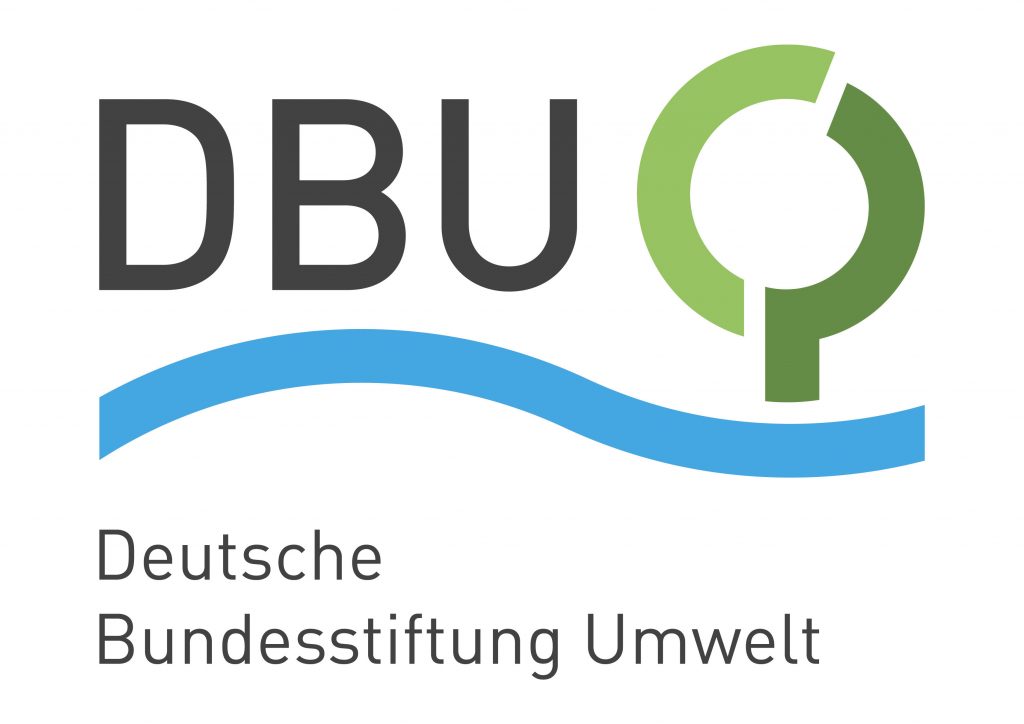
" ZOWIAC - Zoonotic and ecological effects on wildlife of invasive carnivores"
The joint project ZOWIAC will make an essential contribution to the development of up-to-date, sound and reliable data in order to better assess the health risk posed by the raccoon, raccoon dog, mink and golden jackal, and their impact on native species and ecosystems,
Funding: The German Federal Environmental Foundation (DBU)
Period of funding: 2018 – 2024
Project partners: Goethe University, Senckenberg Society for Nature Research
Participant from LOEWE-TBG: Prof. Dr. Sven Klimpel

This project is addressing the question what is the contribution of convergent vs. lineage-specific molecular changes to phenotypic convergence, using convergent adaptations to a sugar-rich diet in independent lineages of frugivorous and nectarivorous bats as a tractable model. This will reveal the first comprehensive picture of convergent as well as lineage-specific changes that are important for adaptations to sugar-rich diets in these bats, which may also uncover promising targets with relevance for human metabolic disorders.
Funding: Deutsche Forschungsgemeinschaft (DFG)
Period of funding: 2021 – 2024
Participant from LOEWE-TBG: Prof. Dr. Michael Hiller
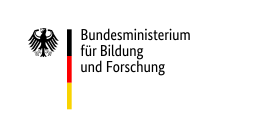
"ASCRIBE - Screening bioresources to identify novel antiviral agents for the treatment of influenza infections"
The primary goal of the project is to identify novel drug compounds for the treatment of influenza across subtypes.
Funding: Federal Ministry of Education and Research (BMBF)
Period of funding: 2020 – 2025
Project leader: Dr. Kornelia Hardes
Cooperation partners:
Prof. Dr. Eva Friebertshäuser, Institute of Virology, Philipps University Marburg
Prof. Dr. Torsten Steinmetzer, Institute for Pharmaceutical Chemistry, Philipps University Marburg
Participant from LOEWE-TBG: Dr. Kornelia Hardes

"Niche evolution of Tibetan-Himalayan Rhyacophilidae (Trichoptera) II: Comparative Phylogeography and Niche Differentiation of Alpine/Subalpine Himalopsyche of the Himalayan/QTP Region"
The project will generate insights on the importance of topography on migration patterns of aquatic insects and the role of mountain ranges as species pumps under environmental change.
Funding: Deutsche Forschungsgemeinschaft (DFG)
Period of funding: 2018 – 2022
Applicants: Dr. Sami Domisch – Leibniz-Institut für Gewässerökologie und Binnenfischerei (IGB)
Prof. Dr. Sonja Jähnig – Humboldt-Universität zu Berlin
Prof. Dr. Steffen Pauls – Senckenberg Forschungsinstitut und Naturmuseum
Participant from LOEWE-TBG: Prof. Dr. Steffen Pauls

"Terpenoids from fungi"
Terpenes or their derivatives are found in all organisms. In the Attract group stand fungi of the IME-BR strain collection (formerly Sanofi strain collection) are cultivated in different systems. Thus, the production of terpenoid compounds is induced. The formed compounds are subsequently tested for their sensory, antiviral and antimicrobial activity in order to use them, for example, as flavors in the food industry, as attractants or repellents in the agricultural industry or in pharmaceuticals.
Funding: Fraunhofer Attract
Period of funding: 2021 – 2026
Project leader: Dr. Martin Rühl

"Spatio-temporal dynamics of genome-wide diversity of Fagus sylvatica"
Using the whole genome sequencing (WGS) approach, the project will investigate genetic diversity and differentiation among natural populations of F. sylvatica representing the three major lineages of this species (reference populations) defined in Central Europe. The findings will have high importance for understanding the underlying mechanisms driving changes in neutral and adaptive genomic regions, which will be relevant for managing of genetic resources of tree species in the context of genetic conservation but also forestry practices.
Funding: Deutsche Forschungsgemeinschaft (DFG)
Period of funding: 2020 – 2023
Applicant: Prof. Dr. Marco Thines
Partner organisation: Narodowe Centrum Nauki (NCN), Polen
Cooperation partners: Professor Dr. Jaroslaw Burczyk
Dr. Joanna Meger
Dr. Bartosz Ulaszewski
Participant from LOEWE-TBG: Prof. Dr. Marco Thines

"Microbial biofactories: RhabdoFerm - Photorhabdus and Xenorhabdus bacteria as production stems for biologically active natural products applied in medicine, agriculture and biotechnology."
Many bacteria produce biologically active natural products or secondary metabolites, some of which are also used clinically, e.g. as antibiotics or against cancer. In the past, these natural products were mainly obtained from known natural product producers such as Streptomyces or Myxobacteria. However, recent work shows that many other bacterial genera are also capable of producing natural products, but their function and structure are mostly still unknown. The goal of RhabdoFerm is to uncover this treasure.
Funding: Federal Ministry of Education and Research (BMBF)
Period of funding: 2020 – 2023
Participants from LOEWE-TBG: Prof. Dr. Helge Bode, Prof. Dr. Andreas Vilcinskas

"Function, mechanism and structural basis for the regulation of gene expression by small regulatory RNAs (sRNAs) in γ-proteobacteria (B17*)"
Subproject of SFB 902: Molecular Mechanisms of RNA-based Regulation
The aim of this project is to delineate the molecular basis for sRNA-based regulatory mechanisms in these bacteria by combining transcriptomic methods, in vivo mutagenesis, in vitro biochemical and biophysical experiments with structural biology approaches
Funding: Deutsche Forschungsgemeinschaft (DFG)
Period of funding: 2020 – 2023
Project leaders:
Professor Dr. Helge Björn Bode,
Professor Dr. Jens Wöhnert
Participant from LOEWE-TBG: Prof. Dr. Helge Bode

"PHYTOARK - Predicting the future from signatures of the past: using living sediment archives and ancient DNA to understand responses of marine primary producers to environmental changes"
PHYTOARK looks into the Holocene history of the Baltic Sea to estimate patterns of phytoplankton biodiversity in the past and to assess its ecosystem function under global change.
Funding: WGL – Leibniz-Gemeinschaft
Period of funding: 2021 – 2024
Project coordination: Dr. Anke Kremp
Research focus:
Priority 1: Small- and mesoscale processes
Priority 3: Ecosystems in transition
Priority 4: Coastal seas and society
Project partners:
University of Helsinki
HELCOM
Södertörn University
University of Gothenburg
University of Lund
University of Hamburg
Senckenberg Biodiversity and Climate Research Center
University of Konstanz
Michigan State University, Kellogg Biological Station
Participants from LOEWE-TBG: Prof. Dr. Miklos Balint, Prof. Dr. Markus Pfenninger

"Validating venom variation and evolution in solitary and eusocial aculeate hymenopterans by comparative genomics, transcriptomics, and proteomics"
This project aims to tackle for the first time venom evolution and biology within aculeate hymenopterans in a comparative approach using the triade of modern venom science (venomics): transcriptomics, proteomics and genomics. The two major goals are to address possible venom variation between solitary and eusocial aculeates and how venom proteins differ between pollinating and predatory taxa. Aculeate taxa are further introduced as new model organism to understand fundamental principles and to test current hypotheses in venom evolution and venom biology.
Funding: Deutsche Forschungsgemeinschaft (DFG)
Period of funding: 2019 – 2022
Participant from LOEWE-TBG: Dr. Björn Marcus von Reumont

"In search of the garden dormouse”
The project aims to secure the existing garden dormouse populations in a large part of their German distribution range. Besides a more precise knowledge of the current distribution, the project will also contribute to a better understanding of the ecology of the species by radio telemetry, food analyses (using faeces), clinical checks of dead animals, and genetical analyses of different populations. Recommendations for wildlife stations for the correct handling of Garden dormouse are developed.
Funding: The Federal Agency for Nature Conservation with resources from the Federal Ministry for the Environment, Nature Conservation and Nuclear Safety.
Period of funding: 2018 – 2024
Additional funding and support:
BUND Bundesverband (German Association),
BUND Naturschutz in Bayern (Nature Protection Bavaria)
BUND Hessen (Hesse)
BUND Niedersachsen (Lower Saxony)
BUND Nordrhein-Westfalen (North Rhine-Westphalia)
BUND Rheinland-Pfalz (Rhineland-Palatinate):
BUND Thüringen (Thuringia)
Justus-Liebig-Universität Gießen
Senckenberg Gesellschaft für Naturforschung
Participant from LOEWE-TBG: Dr. Carsten Nowak
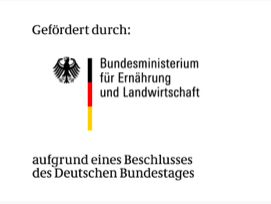
The project is developing an up-to-date synthesis on the scientifically supported impacts on forest biodiversity. The impact of the forest management and of the natural evolution of abandoned forests will be measured and compared.
The joint project is divided into two sub-projects. In the first sub-project (SP 1), a list of indicators (species, structures, habitats, site conditions) will be identified. In subproject 2 (SP 2) a monitoring concept will be developed on the basis of SP 1, which will undergo a practical test.
Funding: Federal Ministry of Food and Agriculture (BMEL)
Period of funding: 2020 – 2022
In cooperation with:
Bayerische Staatsforsten,
Bundesanstalt für Immobilienaufgaben,
Forst Baden-Württemberg,
Landesbetrieb Forst Brandenburg,
Landesbetrieb Hessen Forst,
Landesbetrieb Wald und Holz NRW,
Landesforst Mecklenburg-Vorpommern,
Landesforstbetrieb Sachsen-Anhalt,
Landesforsten Rheinland-Pfalz, Niedersächsische Landesforsten,
SaarForst Landesbetrieb, Schleswig-Holsteinische Landesforsten,
Staatsbetrieb Sachsenforst, ThüringenForst,
Senckenberg Gesellschaft für Naturforschung
Applicants: Prof. Dr. Hermann Spellmann, Dr. Peter Meyer
Participant from LOEWE-TBG: Prof. Dr. Steffen Pauls

"BE-Spring: Discovering Collembola biodiversity on grasslands with emerging genomic and metagenomic tools"
The project is aiming to create a Springtail Genome Reference Database (SGRD) with a focus on grassland soil Collembola fauna. The SGRD will provide genome data that not only includes all standard barcodes, but also considerably increases available genomic information, including also lower-copy nuclear elements. The project will evaluate 1) how land use intensity drives species abundance, richness and 2) functional trait distribution, and 3) how Collembola communities are related to other organism groups of the grassland ecosystem, including the abundance of particular fungi and plants.
Subproject of SPP 1374: Exploratories for Long-Term and Large-Scale Biodiversity Research (Biodiversity Exploratories)
Funding: Deutsche Forschungsgemeinschaft (DFG)
Period of funding: 2020 – 2023
Participants from LOEWE-TBG: Prof. Dr. Miklos Balint, Dr. Clement Schneider, Anna Küchler
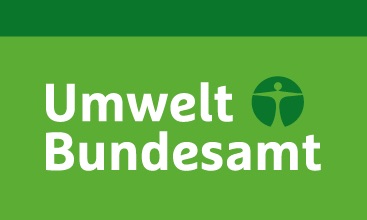
The project is aiming to take a comprehensive look at temporal biodiversity trends: at soil, fields, forests, rivers and coasts. Newly developed genetic methods will allow analyzing these trends with the samples of the German Environmental Specimen Bank archives in greater detail.
Period of funding: 2021 – 2025
Funding: Federal Environment Agency
Project coordination: Prof. Dr. Florian Leese
Project partners:
University of Duisburg-Essen
University of Trier
Senckenberg Society for Nature research
Fraunhofer IME
Participants from LOEWE-TBG: Prof. Dr. Miklos Balint, Prof. Dr. Markus Pfenninger, Prof. Dr. Steffen Pauls